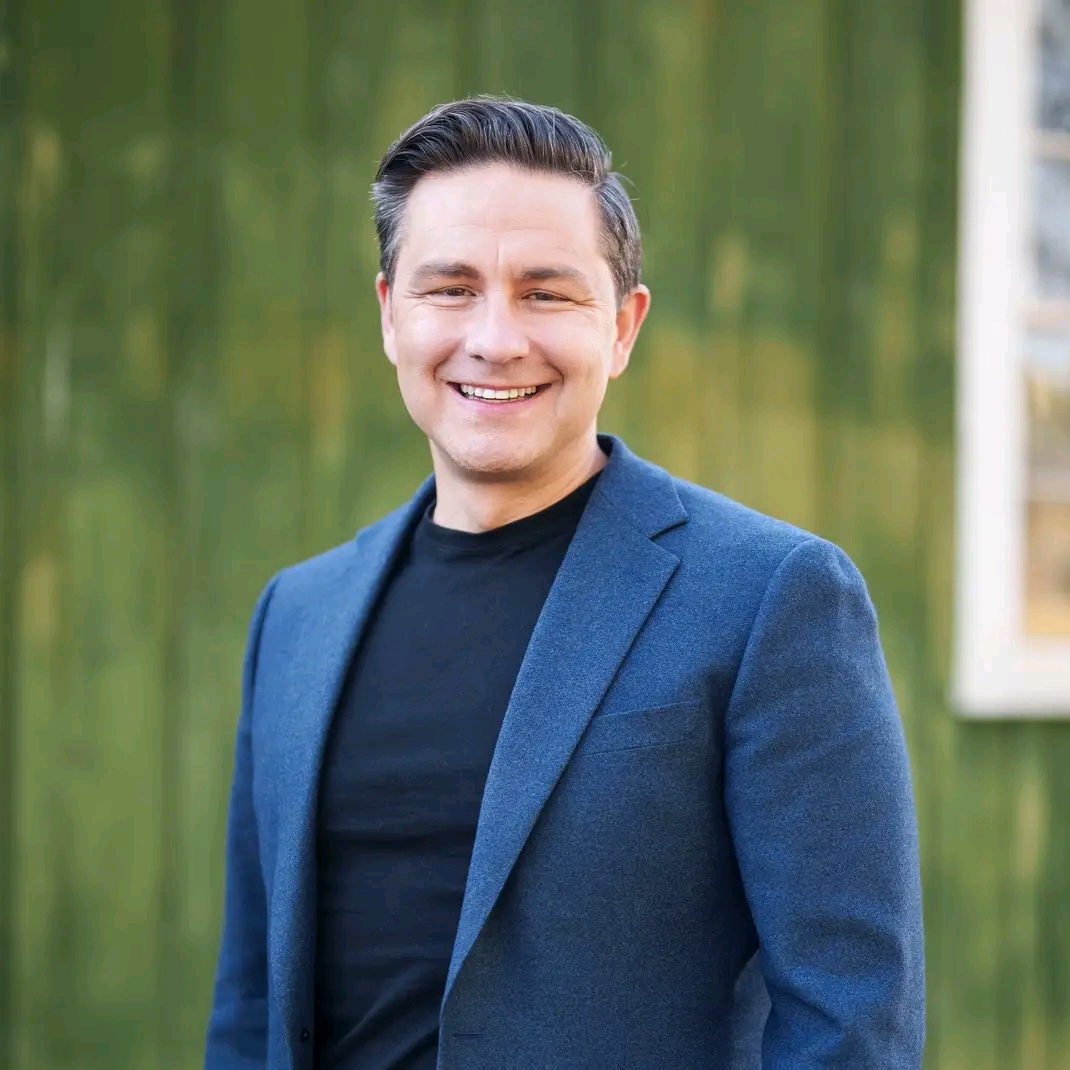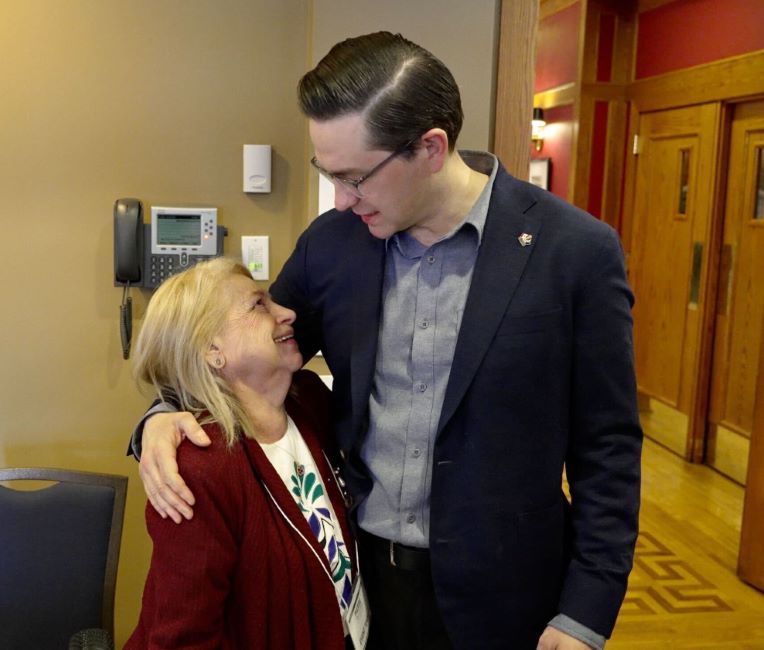Unveiling Pierre Poilievre's Ancestry: Family Roots & Origins
Can a politician's roots truly shape their present-day actions and political stances? The ancestral lineage of Pierre Poilievre, the current leader of the Conservative Party of Canada, offers a fascinating lens through which to examine his political journey and understand his perspectives.
The exploration of Pierre Poilievre's ancestry is not merely a genealogical exercise; its a delve into the factors that have contributed to his worldview and political ideology. By understanding his family history, we gain insights into the values, beliefs, and experiences that have shaped him. This is not about predestination, but rather about identifying the influences that have subtly, and sometimes not so subtly, steered him toward the political path he has chosen. It is important to approach this with a critical eye, recognizing that while ancestry offers context, it doesn't define a person. The journey of tracing someone's roots, especially in the public arena, is frequently complicated, and requires a delicate handling of family lore, historical records, and the inevitable gaps that exist in any such investigation.
| Category | Details |
|---|---|
| Full Name | Pierre Poilievre |
| Date of Birth | June 3, 1979 |
| Place of Birth | Calgary, Alberta, Canada |
| Political Party | Conservative Party of Canada |
| Current Position | Leader of the Conservative Party of Canada |
| Education | University of Calgary (BA in International Relations) |
| Family | Married to Anaida Poilievre; two children |
| Career Highlights | Served as a Member of Parliament (MP) for Carleton; Former Minister of Employment and Social Development; Former Minister of State for Democratic Reform |
| Political Ideology | Generally considered to be on the right-wing of the political spectrum, with a focus on fiscal conservatism, individual liberty, and limited government intervention. |
| Key Policy Positions | Advocates for lower taxes, reduced government spending, and deregulation. He has been critical of government debt and deficits. He has been vocal on issues concerning inflation and cost of living. He is also a proponent of free speech. |
| Key Legislation Sponsored | While he has been an MP, he has introduced many private member's bills and supported government legislation. |
| Significant Roles | Leader of the Official Opposition (2022-Present) |
| Reference Website | Parliament of Canada - Members of Parliament |
Pierre Poilievres early life, shaped by his adoption at a young age, introduces the first layer of understanding. Adopted shortly after birth, his formative years were spent in Calgary, Alberta. His adoptive parents, a teacher and a social worker, undoubtedly provided a nurturing and stable environment, setting the stage for his future. The circumstances of his adoption are part of a complex personal story, and the impact of adoption on his development is something that can be examined within the framework of his values and perspectives, but it is important to treat this with respect and avoid speculation.
Delving further into his ancestry, we find elements that provide glimpses into his heritage. Information about his biological parents is limited due to privacy concerns. However, such details often serve as markers, helping illuminate the influences that have affected him throughout his life. The very act of searching for one's origins, the desire to know where one comes from, is a deep-seated human need. This is not to suggest that these details determine his political positions, but it provides additional information that can shape the overall narrative about his personal narrative and how his life has unfolded.
The importance of family, even in its absence, could have left an indelible mark. In tracing his ancestors, one often encounters themes of perseverance, resilience, and survival stories that shape the moral compass. This is a lesson that those who pursue public life can use in forming their public image, in the way that they communicate with the public. In many instances, the stories behind these individuals help define character, shape values, and offer lessons that are invaluable. These stories are the essence of who we are. By knowing the stories of their ancestors, individuals can construct their own narratives and form a stronger sense of identity.
Poilievre's upbringing in Alberta, a province with a strong conservative tradition, is also of significance. Albertas history, characterized by its resource-based economy and individualistic spirit, likely contributed to the development of his political leanings. The province's emphasis on self-reliance and fiscal conservatism would have served as another layer of influence, creating a fertile ground for the development of his present political principles. The history of Alberta has been shaped by its natural resources, particularly oil and gas, which have fueled the economy and shaped the political landscape. This has resulted in the province's conservative orientation and its emphasis on free-market principles.
His educational background, with a Bachelor of Arts in International Relations from the University of Calgary, is also an important piece of the puzzle. This academic background provides a framework of understanding. It indicates an awareness of global affairs, which is crucial for anyone involved in politics. These studies, along with his experiences, would have added layers to his understanding of the issues he deals with daily, giving him more insight into the complexity of global politics. Through his education, it is clear that he has had the opportunity to develop his critical thinking abilities, and understand the complexities of various cultures. This is an integral part of who he is today.
Poilievre's career trajectory, encompassing roles within the Canadian Parliament and as a cabinet minister, further informs our understanding of his political evolution. Starting as a Member of Parliament, his path has been a continuous progression that has culminated in his leadership position. He served in several key roles that allowed him to shape policy and contribute to key debates. His tenure in these roles has provided him with valuable hands-on experience in governance and in shaping policy. His ability to climb the political ladder, with each step, reveals a person with a dedicated work ethic, and the tenacity that is required in political life.
Poilievre's political philosophy, which leans towards fiscal conservatism, individual liberty, and limited government intervention, is likely a reflection of his upbringing and experiences. This approach aligns with his understanding of the role of government and its impact on citizens. The choices he makes, and the policies he promotes, are all the result of who he is as a person, and are also the product of his experiences, his education and his ancestors.
The impact of his immediate family his wife, Anaida, and their children on his life and his political career cannot be ignored. The personal connections and familial relationships play an essential part in shaping the individual. His personal life, the very values of his family, are all the forces that contribute to his outlook on life, and how he acts. These factors also affect the policies he chooses to support. It is important to recognize the personal element of family in their impact on a political figure's worldview. This personal element adds depth to the understanding of the man himself.
Analyzing Pierre Poilievre's political actions in the context of his ancestry requires a nuanced approach. It is essential to differentiate between correlation and causation. While his background offers valuable context, it is important to acknowledge that individual choices and political positions are influenced by many factors. The connections between his family background and his political beliefs should be approached cautiously, with an understanding that it is one part of a complicated story. This requires a balanced and thoughtful approach that is based on evidence, and careful examination.
His stances on economic policies, such as his advocacy for lower taxes and controlled government spending, might be linked to the conservative values he was exposed to early in life. His stance on the government's involvement is something that is supported and influenced by his background. His views on individual liberties and his concern over governmental intrusions into citizens' lives, possibly reflect a preference for self-reliance and freedom that can be traced back to his early life and family experiences. These policies are the building blocks of his values.
Poilievres communication style, often characterized by its directness and clear messaging, might be another area of exploration. His delivery and style of communication are also an important component in the way he gets his point across. A keen understanding of public opinion, and the ability to effectively communicate his ideas, also play a key role in the public perception of him. Such an approach is something that may be learned, but it also reveals a person who has developed a keen sense of how to communicate effectively.
Examining Pierre Poilievre's ancestry is an ongoing process. The search for understanding requires continuous research, in-depth analysis, and a willingness to examine all sources of information. The process demands accuracy and a comprehensive understanding of the information. As with any person, there is more than meets the eye. This process is an effort to find out the hidden layers of a political leader's family history, his life experiences and his professional life.
Ultimately, exploring Pierre Poilievre's ancestry is an exercise in contextualization. It's about understanding the forces, influences, and experiences that have molded him into the political figure he is today. It is the combined product of nature and nurture. The journey is far from complete, but it is an exercise in the human experience. This kind of investigation reveals a deep, complicated picture of the person. This kind of information offers insights into the actions of any public figure, shedding light on the complexity of the human experience. The objective is to enrich and broaden the understanding of the man, while recognizing the limitations inherent in any such investigation. Further exploration is needed to understand the complexities of the story.


